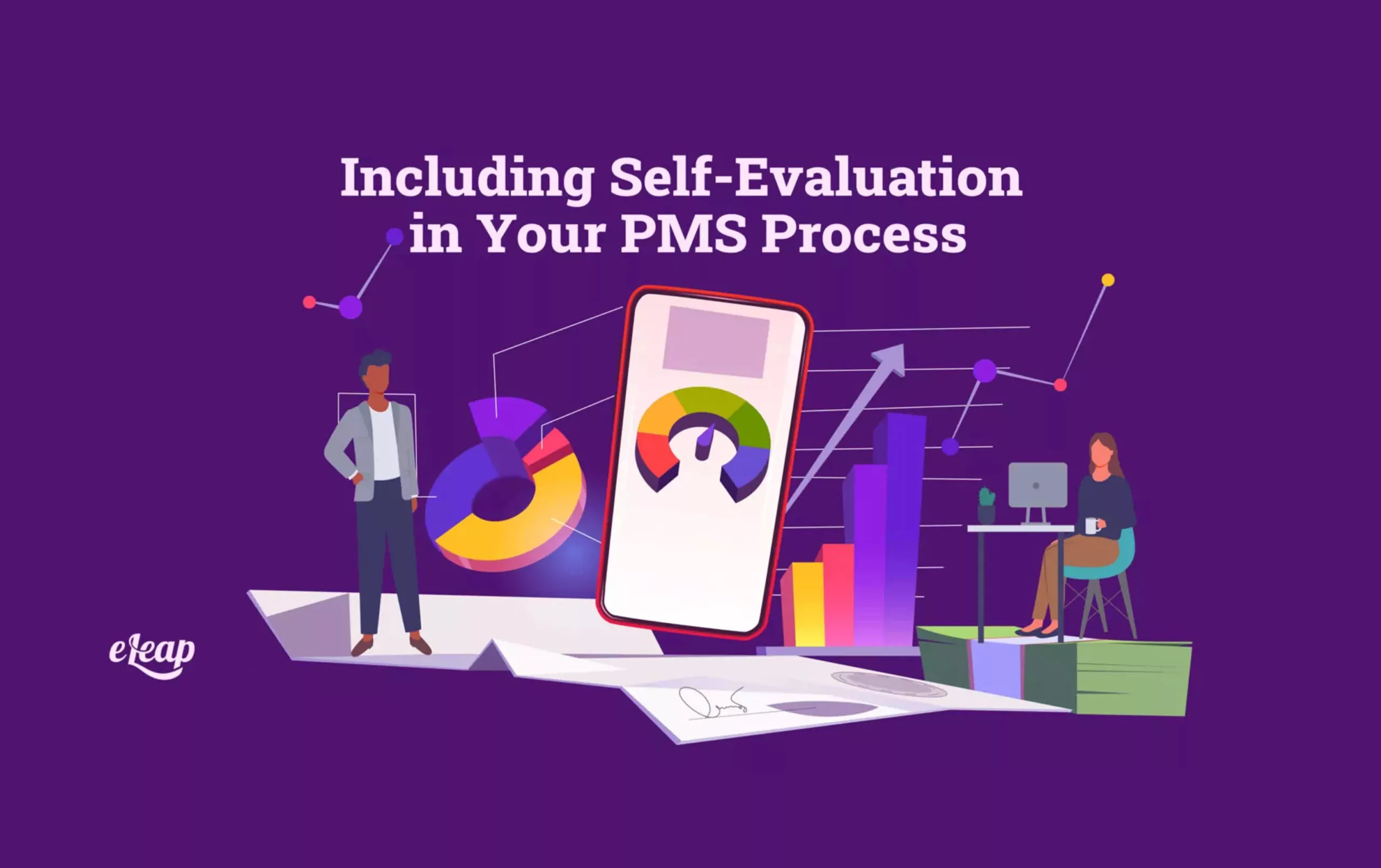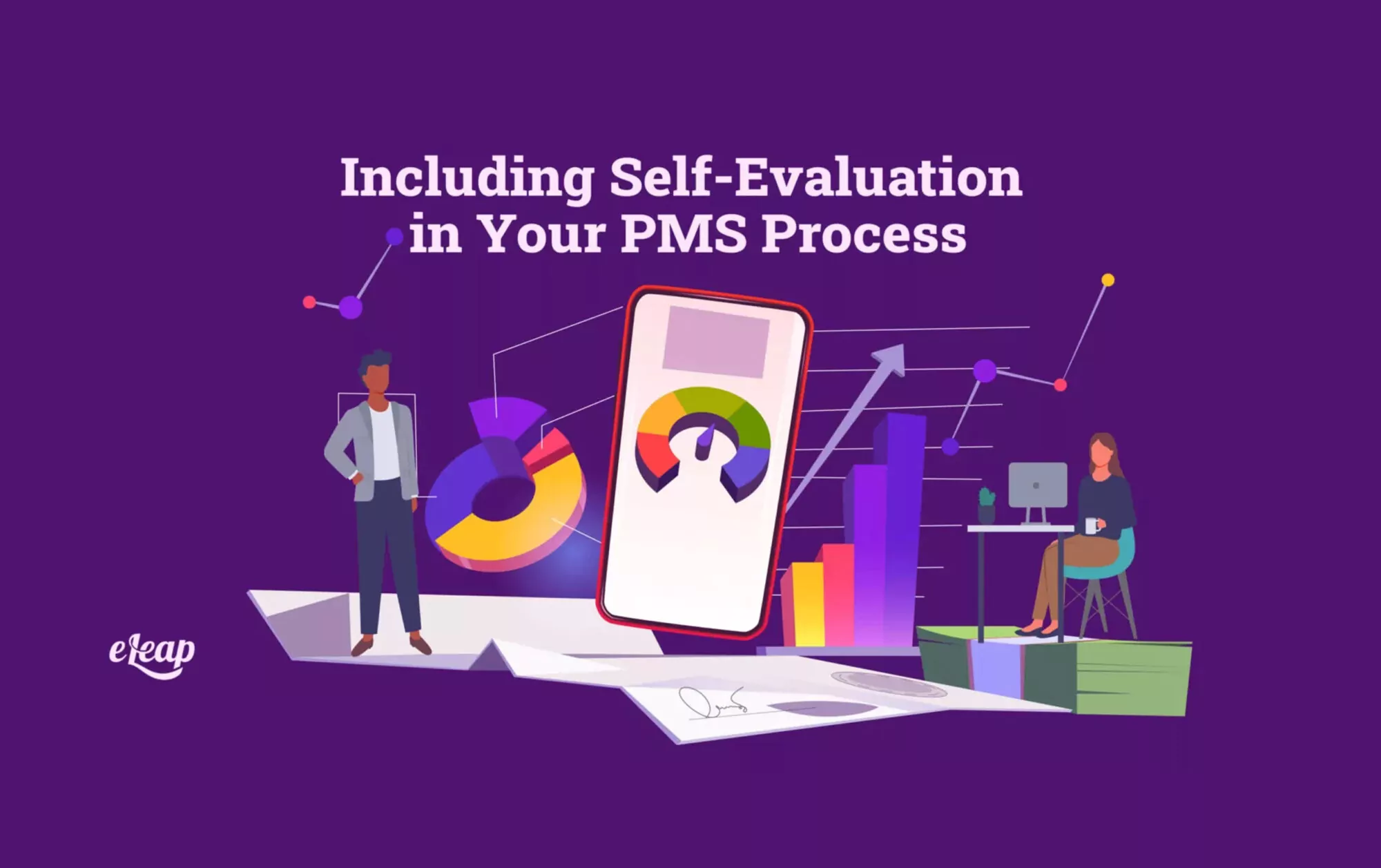Including Self-Evaluation in Your PMS Process

In surveys and research conducted regarding the corporate review process, many employees feel a certain level of anxiety when it comes to discussing their performance with their managers. An employee goes into a meeting with their managers, sometimes without having the slightest clue of what to expect.
Keep in mind; this meeting can change the entire course of the trajectory of their corporate career. It seems that this could be one issue that has no resolution or way to ease this anxiety.
However, more forward-thinking organizations have started to include self-evaluation as part of their performance review process. Self-evaluations give employees a chance to create a voice for themselves during the evaluation process. This can provide substantial results in regard to easing the anxiety when review time rolls around.
Let’s examine some of the additional benefits when it comes to the self-evaluation dynamic for your PMS.

1. Self-Evaluations Create Conversation Surrounding Performance
Since employees are the center of the performance process, isn’t it only fair that they’re a part of the conversation? The old way of conducting reviews includes an employee sitting across from their bosses, hoping it doesn’t sting too bad.
They’re banking on the fact that their superlatives are recognized or hoping the areas they need improvement aren’t overly-accentuated. Incorporating self-evaluations make these instances a two-way street and allow for first-person perspective during the conversation.
This can actually help a manager determine whether an employee is already aware of the areas they need improvement or if they’re a little too overzealous regarding their performance. However, this also works both ways.
It’s important to ensure that an employee doesn’t beat themselves up too much. What you’re looking for is a happy medium with an employee that gives a realistic critique of their own performance.
2. Self-Evaluations Give the Entire Story
During the evaluation process, a manager must recall a lot of data and information regarding the performance of many employees. Most likely, this is going to lead to overlooking important elements of several employees’ areas of performance.
The individual employee is much more familiar with how they performed during a quarter, thus making valuable insight available for a manager to work with. It’s much easier for an employee to outline all of their significant achievements and big wins they took part in.
This self-evaluation can also reveal instances of challenges employees had without them being aware of it. Employees will have a chance to point out whether or not they had the tools they needed to complete a task or big project.
The little details an employee is able to provide mixed with a manager’s insight create the recipe for a near-perfect evaluation process. It will also garner a better relationship between managers and employees.
3. Self-Evaluations Make Employees Receive Reviews More Positively
Completing a self-evaluation will encourage employees to meet their employers’ expectations. Subconsciously, they are already striving to win the praise of their managers.
Unbeknownst to them, this is also warming them up to receive constructive criticism regarding their position. Since they’re already in the mood to show that they’re a valuable part of the team, they’ll be more likely to incorporate changes you suggest to them or areas of improvement.
This can also be a great way to encourage communication and teamwork as well. If this is highlighted on the evaluation, they’ll be more than willing to sharpen up these skills as well. Additionally, receiving a good review encourages them to take a more crucial supporting role to be of help to their peers.
4. Self-Evaluations Help With Development Planning
Remember, a self-evaluation isn’t solely for an employee to review their performance in the past. It’s a way for them to set and prepare for goals coming up in the future. Self-evaluations can be a great way to develop plans for individuals and your company.
During the self-evaluation, ask individuals where they see themselves with the company in six months. Where do they see themselves personally in six months? Remember, aligning personal goals with work goals is a great way to add strength to your company culture.
After asking them what their goals are, ask them how they see themselves arriving at these goals. What does the roadmap to their success look like, and how can the company be of further assistance in helping them realize these goals?
When an employee feels like an organization is willing to help them realize their goals, they’ll be more likely to help the company and team members reach theirs, as well.
Customizing the Self Evaluations
Now that you understand how vital self-evaluations can be, the only thing left to do is customize these evaluations, so they fit your company. How exactly is this done?
- Choose the review criteria you want each employee to rate themselves on. Significant areas that need strengthening should be included
- Add descriptions. It doesn’t hurt when you explain what each separate area of review means. Let them know what the areas entail and how they pertain to their daily activities at work.
- Let employees comment on each separate area on the assessment. This will give you a chance to review their feedback and make improvements in the future.
- Include open-ended questions that allow employees to give you more in-depth feedback.
- Include notes that show examples of how other employees rated themselves. These will be anonymous, of course, but taking a few examples of answers that stood out will encourage employees to formulate their answers in a similar manner. The more useful each answer is, the more impact they’ll make during the evaluation.
- Create a way to develop a final score that can be compared to the manager’s evaluation score. This shows how their opinion stacks up against their leaders and gauges how realistic their opinion of themselves is.
Crafting the proper way to implement self-evaluation in your performance reviews can be one of the most significant changes you’ve made in a while. This is a solution that costs very little to implement but can pay big for your organization in the future. The eLeaP continuous performance management system provides organizations with powerful options to attract and retain high caliber team members.